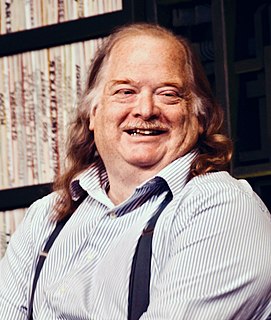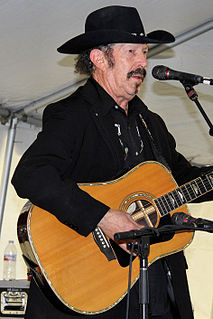A Quote by Jonathan Gold
Cooking is what makes us human. For example, Chimpanzees spend eight to ten hours trying to feed themselves, they are occupied by it, eating basically indigestible things. Once our human ancestors learn to cook things, suddenly we didn't have to spend that much time on digestion, our brains expanded, and we think about other things.
Related Quotes
And James L. Brooks then sort of became our mentor, brought us out to Los Angeles and worked on the script for a year with us. We learned so much working with him - just being able to spend time with him, the quality of his mind, the things he comes up with and says. I think Wes [Anderson] and I could go to dinner tonight and spend the whole dinner thinking and talking about things that Jim has said to us over the years.
I understand that it's a huge luxury for people to dwell on the problems in Washington. Things have to be pretty tidy in your own life that you have the time to worry about what's going on in Washington. Most of us spend our time worrying about the things that are directly around us: our love lives, our careers, and our banking accounts.
Poems offer us counter-knowledges. They let us see what is invisible to ordinary looking, and to find in overlooked corners the opulence of our actual lives. Similarly, we usually spend our waking hours trying to be sure of things - of our decisions, our ideas, our choices. We so want to be right. But we walk by right foot and left foot.
If you think about work, it's just this endlessly fascinating subject. We spend at least half of our waking hours working. So it becomes this incredible window into a whole variety of things: who we are human beings, how the economy works, how people relate to each other, how stuff is made, how the world spins on its axis.
One of the strange things about friendship is that time together isn't cancelled out by time apart. One doesn't erase the other or balance it on some invisible scale. You can spend a few hours with someone and they will change your life, or you can spend a lifetime with a person and remain unchanged.
We become so caught up in the busyness of our lives. Were we to step back, however, and take a good look at what we’re doing, we may find that we have immersed ourselves in the “thick of thin things.” In other words, too often we spend most of our time taking care of the things which do not really matter much at all in the grand scheme of things, neglecting those more important causes.
Most people, of course, spend their lives caring about the wrong things. The worry about South Africa or Nicaragua. They spend so much time finding themselves that they lose their taxicabs. They don't see that what kind of napkin you get at a delicatessen is a matter of much significance in the world today. That's why they don't get linen.




































